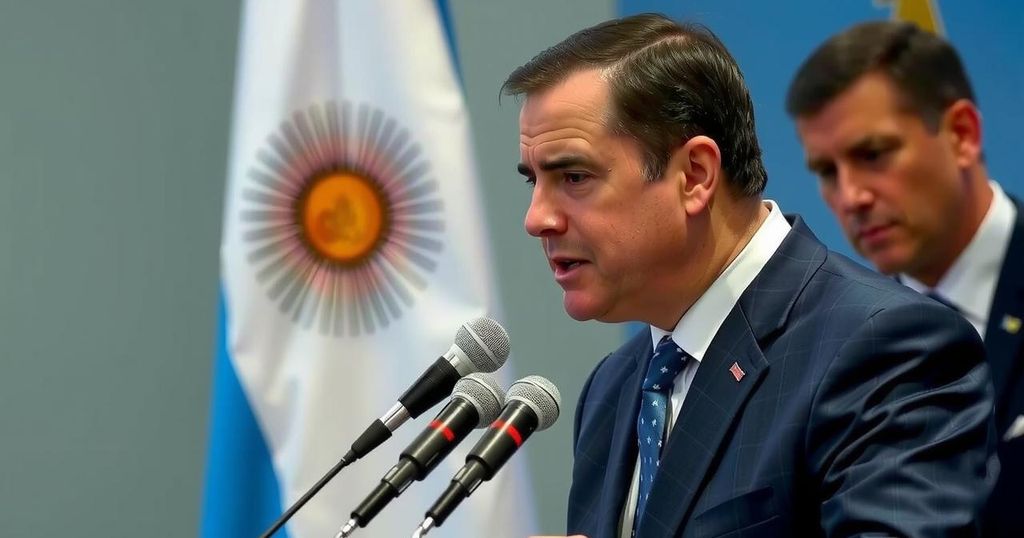Javier Milei Dismisses Foreign Minister Over U.N. Vote on Cuba Embargo

Argentine President Javier Milei has dismissed Foreign Affairs Minister Diana Mondino after her vote in favor of lifting the U.S. embargo against Cuba at the U.N. assembly. This decision reflects Milei’s commitment to pro-U.S. policies and distancing from leftist regimes. Gerardo Werthein has been appointed as the new foreign minister amid internal pressures following the controversial vote.
On Wednesday, Argentine President Javier Milei removed Foreign Affairs Minister Diana Mondino from her position following her vote in favor of lifting the United States’ embargo against Cuba during a United Nations assembly. This decision stems from Milei’s strong alignment with pro-U.S. policies and a noticeable shift away from leftist relations, particularly with nations such as Cuba and Venezuela. The U.N. General Assembly had earlier adopted a resolution calling for the termination of the long-standing U.S. sanctions against Cuba, a move that was met with opposition primarily from the United States and Israel. Milei, who took office in late 2023, emphasized his administration’s intent to maintain a close association with both the United States and Israel. Following the controversial vote, he celebrated a fellow lawmaker’s support for the government’s stand against what he referred to as “dictators.” Gerardo Werthein, who has held the title of Argentina’s ambassador to the United States, has been appointed to succeed Mondino as Foreign Minister, as announced by presidential spokesperson Manuel Adorni on the social media platform X. Diana Mondino, who was among the inaugural members of Milei’s cabinet, had been instrumental in fostering Argentina’s international diplomatic relations, despite the president’s provocative remarks regarding nations including Brazil and China. Notably, President Milei’s discontent was evident when he received a phone call from Werthein concerning the contentious vote which took place during his lunch, further indication of the internal pressures within his administration regarding international policy. Earlier this year, Argentina’s state energy company, YPF, publicly refused to supply fuel to the Cuban airline Cubana, resulting in the suspension of a nearly four-decade-old flight route between Buenos Aires and Havana. The Cuban foreign ministry later stated that Argentine officials had referenced the U.S. embargo as justification for this decision.
The context surrounding this political turmoil is rooted in Argentina’s historical diplomatic relationship with both the United States and its leftist neighbors. President Javier Milei’s administration marks a departure from previous governments that often maintained close ties with political regimes like those in Cuba and Venezuela. With a libertarian ideology that strongly aligns with American interests, Milei’s policies reflect a broader geopolitical strategy intended to redefine Argentina’s role on the global stage. The recent vote at the United Nations to lift the embargo against Cuba sparked significant internal conflict within Milei’s cabinet, with Mondino’s decision highlighting a rift between diplomatic tact and the president’s ideological stance against perceived authoritarian regimes.
In summary, President Javier Milei’s dismissal of Foreign Minister Diana Mondino underscores the tensions within his administration regarding foreign policy, particularly as it pertains to relations with Cuba. As Argentina navigates its diplomatic future, the shift in leadership reflects a commitment to aligning closely with U.S. interests while distancing itself from leftist governments in the region. The implications of these actions are likely to resonate within Latin American geopolitical dynamics, as Argentina reassesses its international partnerships and strategies moving forward.
Original Source: www.hindustantimes.com







